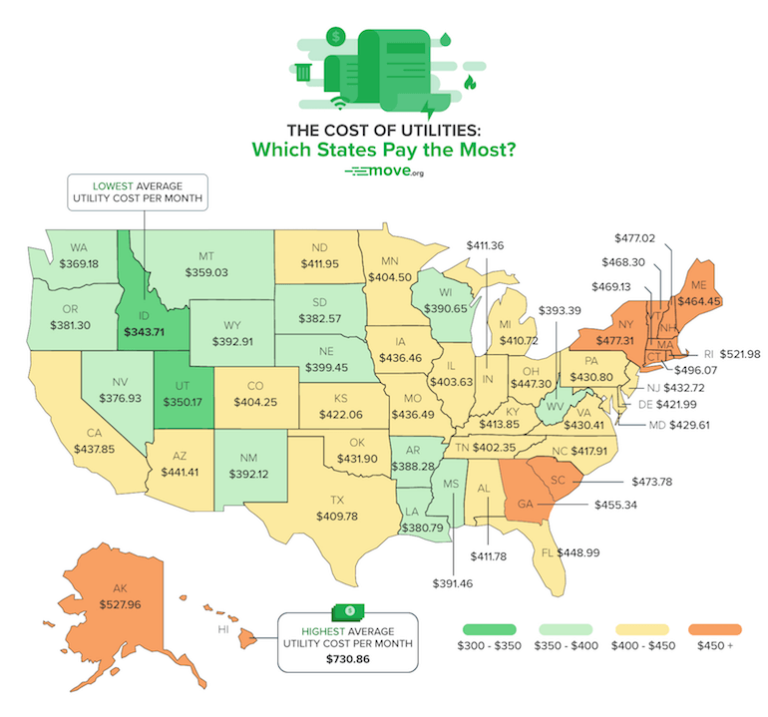Which utilities are most expensive?

When it comes to managing our monthly expenses, utility costs often play a significant role. Understanding which utilities are the most expensive can help us make informed decisions and better budget our finances. In this article, we will explore the factors impacting utility costs and unveil which services tend to be the costliest.
Factors Impacting Utility Costs
Several factors contribute to the overall cost of utilities. These include:
- Usage: The amount of electricity, water, gas, or internet data consumed directly affects the cost.
- Location: Utility rates can vary depending on the region or city you reside in.
- Seasonality: Certain utilities, such as heating and cooling, may be more expensive during extreme weather conditions.
- Infrastructure: The quality and maintenance of utility infrastructure can impact costs.
- Provider: Different utility providers may offer varying rates and pricing structures.
Electricity: The Costliest Utility
Of all the utilities, electricity tends to be the most expensive. With the increasing reliance on electrical appliances and devices in our daily lives, it's no surprise that electricity bills can quickly add up. Factors such as the size of your home, the number of residents, and the use of energy-efficient appliances can influence the cost of your electricity bill.
While water and sewer services are essential, they often come with hidden expenses. Besides the monthly water usage charges, there are additional fees for sewer maintenance, waste removal, and water treatment. The cost of water and sewer services can vary significantly depending on the region, the size of your household, and local infrastructure.
Natural Gas: Balancing Costs and Efficiency
Natural gas is commonly used for heating, cooking, and hot water systems. The cost of natural gas fluctuates based on market conditions and availability. Investing in energy-efficient appliances and optimizing gas usage can help balance costs and reduce monthly bills.
Internet and Cable: The Price of Connectivity
In today's digital age, internet and cable services have become a necessity for many households. While the cost of internet and cable varies depending on the provider and package, these services can still be a significant monthly expense. Bundling services or negotiating with providers can sometimes help reduce costs.
Conclusion
Understanding which utilities are the most expensive allows us to make informed decisions and prioritize our budget accordingly. Electricity tends to be the costliest utility, followed by water and sewer, natural gas, and internet and cable services. By being mindful of our usage, exploring energy-efficient options, and exploring cost-saving strategies, we can better manage our utility costs and achieve financial stability.
Frequently Asked Questions
1. How are utility costs calculated?
Utility costs are typically calculated based on usage, measured in units such as kilowatt-hours (kWh) for electricity or gallons for water. Providers apply a rate per unit to determine the total cost.
2. Are utility costs the same across different regions?
No, utility costs can vary across different regions. Factors such as local infrastructure, regulations, and the availability of resources can influence the rates and pricing structures.
3. Can I negotiate utility rates?
In some cases, utility rates can be negotiated. It is worth reaching out to your utility provider and exploring any available discounts, promotions, or loyalty programs that may help reduce costs.
4. Are there any government assistance programs for utility costs?
Yes, there are government assistance programs available to help individuals and families with their utility costs. These programs are often income-based, and eligibility criteria may vary depending on your location. Contact your local government or social service agencies to inquire about available programs.

Leave a Reply